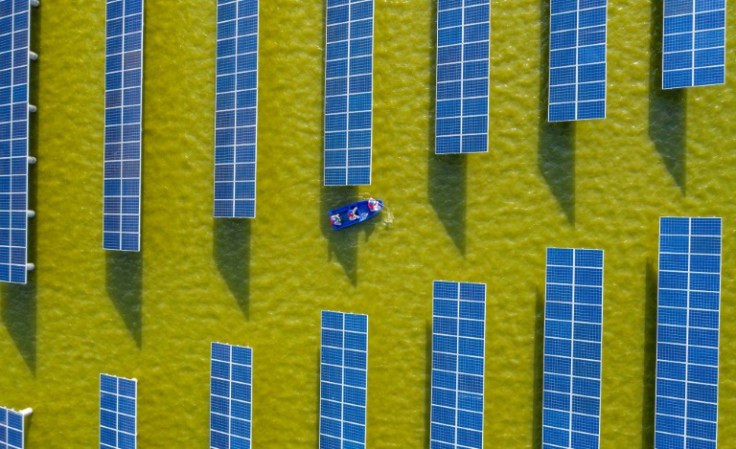China Projected To Hit Peak Carbon Emissions In 2023, Adds Record Renewable Energy Capacity

China has hit its peak level of fossil fuel output in 2023, according to a report released Monday morning from the Centre for Research on Energy and Clean Air (CREA), a nonprofit think tank based in Helsinki.
"For the first time, the rate of low-carbon energy expansion is now sufficient to not only meet, but exceed the average annual increase in China's demand for electricity overall," Lauri Myllyvirta, analyst, said in CREA's report.
CREA estimated that newly installed renewable energy capacity in 2023 will outpace increased power demand for the first time. The organization predicts a decline in carbon emissions for 2024 as new electricity demand will be fulfilled with renewable energy sources.
China's newly installed renewable energy capacity in 2023 is expected to reach 290 gigawatts according to CREA, nearly doubling 2022's figure of 152 gigawatts. The majority of new capacity installed, or 72%, was solar energy, while offshore and onshore wind accounted for 24%. The remaining 4% in new installations came from hydroelectric and nuclear power.
China is the global leader in total solar energy installation. The country aims to source 15% of its electrical generation from non-hydroelectric renewable sources by 2025, a goal which Fitch Ratings predicts will be met.
Though the report details a tipping point in China's quest towards net-zero, it still found that overall carbon emissions in the third quarter of 2023 rose by 4.7% relative to the same period of 2022. Myllyvirta attributed the uptick in year-over-year emissions to the end of China's "zero Covid" policy, which was abruptly terminated in January 2023 after nearly three years in effect.
The East Asian nation had previously committed to reaching maximum carbon emission output before 2030, and achieving full carbon neutrality by 2060. The country still relied on coal-fired power plants for over 50% of its total electrical output in 2020, according to the International Energy Agency.
CREA describes China's coming state of carbon emission reduction as a "structural decline," brought about not only by unprecedented investment in renewable energy capacity, but also by stagnating population growth and consumption.
With China's population projected to decline throughout the remainder of the 21st century in the absence of mass immigration, experts expect new installations of renewable energy facilities to outpace the growth in China's overall energy demand, and take on a growing share of the Chinese electricity market.
The 2023 UN Climate Change Conference will be held from November 30-September 12 in Dubai. China's contributions to both global renewable energy capacity and global carbon emissions are likely to be a focal point at the event.
© Copyright IBTimes 2024. All rights reserved.





















